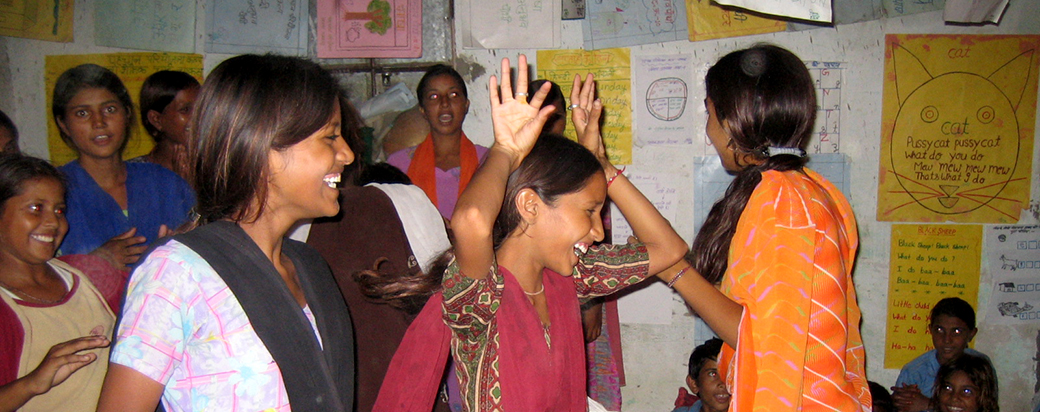Learning Centres for imparting age-appropriate competencies to out-of-school girls for their mainstreaming in age grades. Compensatory Education Centres for low performing at risk of failure at secondary level. Hand-holding support to teachers for pedagogic improvement in government elementary schools. The contextualized curriculum facilitates the cooperative and accelerated learning. Imparting life & income generation skills to adolescent girls. The orientation of members of Community-Based Organizations such as School Management Committees and local self-governance Institutions for compliance of Right to Education Act for school improvement.
Re-organized school curriculum to make relevant for out-of-school over-aged children; Multiple Intelligence theory used for teacher skills; Multi-level learning approach.
Feminist pedagogy based on six principles: Relationship between teacher and students; empowerment; constructing a learning community; privilege of voice of girls; respect for diversity. The pedagogy creates space for mutual respect, critical thinking and empathy, better relationship and safer, open learning environment, allows equal learning opportunities matched to their contexts.
Teachers’ skills are developed based on the Multiple Intelligences approach. The continuous hand-holding academic support is provided to teachers through visits and workshops.
Future Developments
The project was scaled up in eight districts and benefitted about two and half lakh children (75% girls). The model has proven its relevance in diverse socio-geographies without making any significant change. The Learning package developed by CULP is already being used by both government and NGOs for educating out-of-school children in Rajasthan and other states.



